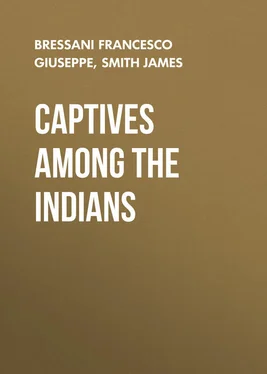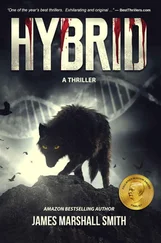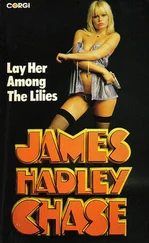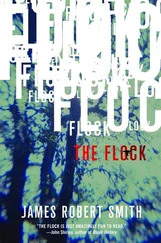James Smith - Captives Among the Indians
Здесь есть возможность читать онлайн «James Smith - Captives Among the Indians» — ознакомительный отрывок электронной книги совершенно бесплатно, а после прочтения отрывка купить полную версию. В некоторых случаях можно слушать аудио, скачать через торрент в формате fb2 и присутствует краткое содержание. Жанр: foreign_antique, foreign_prose, на английском языке. Описание произведения, (предисловие) а так же отзывы посетителей доступны на портале библиотеки ЛибКат.
- Название:Captives Among the Indians
- Автор:
- Жанр:
- Год:неизвестен
- ISBN:нет данных
- Рейтинг книги:5 / 5. Голосов: 1
-
Избранное:Добавить в избранное
- Отзывы:
-
Ваша оценка:
- 100
- 1
- 2
- 3
- 4
- 5
Captives Among the Indians: краткое содержание, описание и аннотация
Предлагаем к чтению аннотацию, описание, краткое содержание или предисловие (зависит от того, что написал сам автор книги «Captives Among the Indians»). Если вы не нашли необходимую информацию о книге — напишите в комментариях, мы постараемся отыскать её.
Captives Among the Indians — читать онлайн ознакомительный отрывок
Ниже представлен текст книги, разбитый по страницам. Система сохранения места последней прочитанной страницы, позволяет с удобством читать онлайн бесплатно книгу «Captives Among the Indians», без необходимости каждый раз заново искать на чём Вы остановились. Поставьте закладку, и сможете в любой момент перейти на страницу, на которой закончили чтение.
Интервал:
Закладка:
Being very hungry, we kindled a fire, opened the bear, took out the liver, and wrapped some of the caul-fat round, and put it on a wooden spit, which we stuck in the ground by the fire to roast; then we skinned the bear, got on our kettle, and had both roast and boiled, and also sauce to our meat, which appeared to me to be delicate fare. After I was fully satisfied I went to sleep; Tontileaugo awoke me, saying, "Come, eat hearty, we have got meat plenty now."
The next morning we cut down a lynn-tree, peeled bark and made a snug little shelter, facing the southeast, with a large log betwixt us and the northwest; we made a good fire before us, and scaffolded up our meat at one side. When we had finished our camp we went out to hunt; searched two trees for bears, but to no purpose. As the snow thawed a little in the afternoon, Tontileaugo killed a deer, which we carried with us to camp.
Some time in February the four warriors returned, who had taken two scalps and six horses from the frontiers of Pennsylvania. The hunters could then scatter out a considerable distance from the winter-cabin and encamp, kill meat, and bring it in upon horses; so that we commonly, after this, had plenty of provision.
In this month we began to make sugar. As some of the elm-bark will strip at this season, the squaws, after finding a tree that would do, cut it down, and with a crooked stick, broad and sharp at the end, took the bark off the tree, and of this bark made vessels, in a curious manner, that would hold about two gallons each; they made above one hundred of these kind of vessels. In the sugar-tree they cut a notch, sloping down, and at the end of the notch stuck in a tomahawk; in the place where they stuck the tomahawk they drove a long chip, in order to carry the water out from the tree, and under this they set their vessel to receive it. As sugar-trees were plenty and large here, they seldom or never notched a tree that was not two or three feet over. They also made bark vessels for carrying the water that would hold about four gallons each. They had two brass kettles that held about fifteen gallons each, and other smaller kettles in which they boiled the water. But as they could not at times boil away the water as fast as it was collected, they made vessels of bark that would hold about one hundred gallons each for retaining the water; and though the sugar-trees did not run every day, they had always a sufficient quantity of water to keep them boiling during the whole sugar-season.
About the latter end of March we began to prepare for moving into town in order to plant corn. The squaws were then frying the last of their bear's fat and making vessels to hold it; the vessels were made of deer-skins, which were skinned by pulling the skin off the neck without ripping. After they had taken off the hair they gathered it in small plaits round the neck, and, with a string, drew it together like a purse; in the centre a pin was put, below which they tied a string, and while it was wet they blew it up like a bladder, and let it remain in this manner until it was dry, when it appeared nearly in the shape of a sugar-loaf, but more rounding at the lower end. One of these vessels would hold about four or five gallons. In these vessels it was they carried their bear's oil.
When all things were ready we moved back to the falls of Canesadooharie. On our arrival at the falls (as we had brought with us on horseback about two hundred weight of sugar, a large quantity of bear's oil, skins, etc.) the canoe we had buried was not sufficient to carry all; therefore we were obliged to make another one of elm-bark. While we lay here a young Wyandot found my books. On this they collected together. I was a little way from the camp, and saw the collection, but did not know what it meant. They called me by my Indian name, which was Scoouwa, repeatedly. I ran to see what was the matter; they showed me my books, and said they were glad they had been found, for they knew I was grieved at the loss of them, and that they now rejoiced with me because they were found. As I could then speak some Indian, especially Caughnewaga (for both that and the Wyandot tongue were spoken in this camp), I told them that I thanked them for the kindness they had always shown to me, and also for finding my books. They asked if the books were damaged. I told them not much. They then showed how they lay, which was in the best manner to turn off the water. In a deer-skin pouch they lay all winter. The print was not much injured, though the binding was. This was the first time that I felt my heart warm towards the Indians. Though they had been exceedingly kind to me, I still before detested them on account of the barbarity I beheld after Braddock's defeat. Neither had I ever before pretended kindness, or expressed myself in a friendly manner; but I began now to excuse the Indians on account of their want of information.
We staid at this camp about two weeks, and killed a number of bears, raccoons, and some beavers. We made a canoe of elm-bark, and Tontileaugo embarked in it. He arrived at the falls that night; while I, mounted on horseback, with a bear-skin saddle and bark stirrups, proceeded by land to the falls. I came there the next morning, and we carried our canoe and loading past the falls.
We again proceeded towards the lakes; I on horseback and Tontileaugo by water. Here the land is generally good, but I found some difficulty in getting round swamps and ponds. When we came to the lake I proceeded along the strand and Tontileaugo near the shore, sometimes paddling and sometimes poling his canoe along.
After some time the wind arose, and he went into the mouth of a small creek and encamped. Here we staid several days on account of high wind, which raised the lake in great billows. While we were here Tontileaugo went out to hunt, and when he was gone a Wyandot came to our camp. I gave him a shoulder of venison which I had by the fire well roasted, and he received it gladly; told me he was hungry, and thanked me for my kindness. When Tontileaugo came home I told him that a Wyandot had been at camp, and that I gave him a shoulder of roasted venison. He said that was very well, "and I suppose you gave him also sugar and bear's oil to eat with his venison." I told him I did not, as the sugar and bear's oil were down in the canoe, I did not go for it. He replied, "You have behaved just like a Dutchman. 3 3 The Dutch he called Skoharehaugo, which took its derivation from a Dutch settlement called Skoharey.
Do you not know that when strangers come to our camp we ought always to give them the best that we have?" I acknowledged that I was wrong. He said that he could excuse this, as I was but young; but I must learn to behave like a warrior, and do great things, and never be found in any such little actions.
The lake being again calm, we proceeded, and arrived safe at Sunyendeand, which was a Wyandot town that lay upon a small creek which empties into the little lake below the mouth of Sandusky.
The town was about eighty rood above the mouth of the creek, on the south side of a large plain, on which timber grew, and nothing more but grass or nettles. In some places there were large flats where nothing but grass grew, about three feet high when grown, and in other places nothing but nettles, very rank, where the soil is extremely rich and loose; here they planted corn. In this town there were also French traders, who purchased our skins and fur, and we all got new clothes, paint, tobacco, etc.
After I had got my new clothes, and my head done off like a red-headed woodpecker, I, in company with a number of young Indians, went down to the corn-field to see the squaws at work. When we came there they asked me to take a hoe, which I did, and hoed for some time. The squaws applauded me as a good hand at the business; but when I returned to the town the old men, hearing of what I had done, chid me, and said that I was adopted in the place of a great man, and must not hoe corn like a squaw. They never had occasion to reprove me for anything like this again; as I never was extremely fond of work, I readily complied with their orders.
Читать дальшеИнтервал:
Закладка:
Похожие книги на «Captives Among the Indians»
Представляем Вашему вниманию похожие книги на «Captives Among the Indians» списком для выбора. Мы отобрали схожую по названию и смыслу литературу в надежде предоставить читателям больше вариантов отыскать новые, интересные, ещё непрочитанные произведения.
Обсуждение, отзывы о книге «Captives Among the Indians» и просто собственные мнения читателей. Оставьте ваши комментарии, напишите, что Вы думаете о произведении, его смысле или главных героях. Укажите что конкретно понравилось, а что нет, и почему Вы так считаете.












